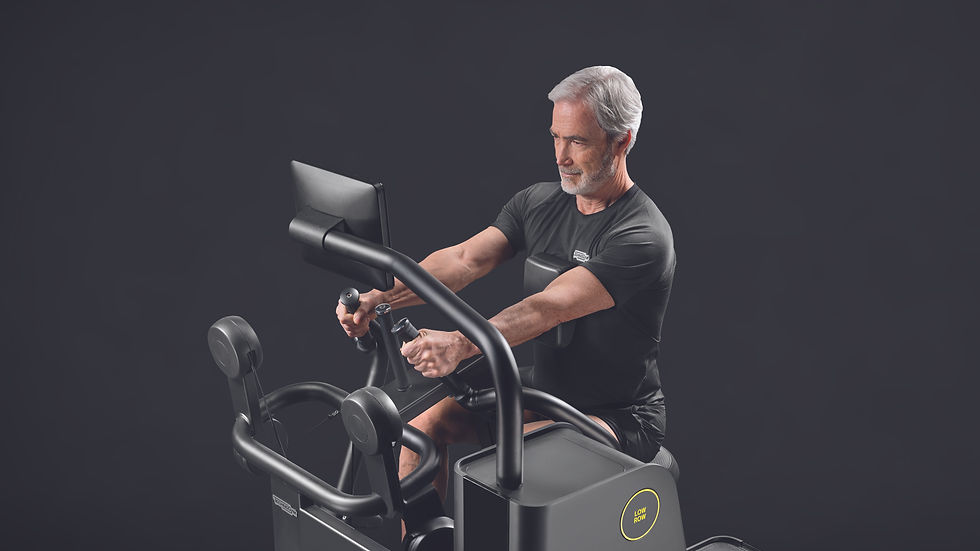The Importance of Sleep: Insights and Tips
- Rob Olson
- Jul 10, 2024
- 4 min read

Sleep is often undervalued in our fast-paced society, yet it is one of the most crucial components for overall health and well-being. Adequate sleep affects everything from cognitive function to physical health. In this comprehensive blog, we delve into the importance of sleep, drawing on insights and tips from renowned experts Peter Attia and Andrew Huberman.
Bottom Line Up Front:
Adequate sleep is crucial for cognitive function, physical health, and emotional well-being. Experts Peter Attia and Andrew Huberman emphasize its importance for longevity, stress reduction, and overall health. By creating an optimal sleep environment, maintaining a consistent schedule, and practicing relaxation techniques, you can significantly improve your sleep quality and, consequently, your overall well-being.
Why Sleep Matters, A Deeper Look
Cognitive Function - Be Smarter!
Sleep plays a pivotal role in cognitive functions such as memory consolidation, learning, and problem-solving. According to Andrew Huberman, a neuroscientist at Stanford University, sleep helps to "prune" synapses in the brain, removing unnecessary connections and strengthening important ones. This process is vital for learning and memory retention.
Physical Health - Be Healthier!
Peter Attia, a leading expert in longevity and health, emphasizes that sleep is fundamental for physical health. Adequate sleep supports immune function, reduces inflammation, and helps regulate hormones that control hunger and stress. Chronic sleep deprivation, on the other hand, is linked to numerous health issues, including obesity, diabetes, cardiovascular disease, and even reduced life expectancy. What is sleep deprivation? Anything consistently less than 7 hours!
Emotional Well-being - Be Happier!
Both Huberman and Attia highlight the importance of sleep for emotional regulation. Lack of sleep can lead to increased stress levels, mood swings, and a higher susceptibility to mental health issues such as anxiety and depression. Sleep helps in maintaining a balanced emotional state and improves overall mental health.
Insights from Peter Attia
Sleep and Longevity
Peter Attia emphasizes that sleep is a cornerstone of longevity. In his practice, he often observes that improving sleep quality and duration can lead to significant improvements in his patients' overall health. Attia recommends aiming for 7-9 hours of sleep per night to optimize health and longevity.
The Sleep Environment
Attia suggests creating an optimal sleep environment to enhance sleep quality. This includes keeping the bedroom cool, dark, and quiet. He also recommends minimizing exposure to screens and blue light at least an hour before bedtime, as blue light can interfere with the production of melatonin, the hormone that regulates sleep.
Consistent Sleep Schedule
Maintaining a consistent sleep schedule is another key recommendation from Attia. Going to bed and waking up at the same time every day, even on weekends, helps regulate the body's internal clock and can improve sleep quality over time.
Insights from Andrew Huberman
The Science of Sleep Cycles
Andrew Huberman explains that understanding sleep cycles can help optimize sleep quality. Sleep is divided into REM (rapid eye movement) and non-REM stages, with each cycle lasting about 90 minutes. Non-REM sleep includes deep sleep, which is critical for physical recovery, while REM sleep is essential for cognitive functions like memory and learning.
The Role of Light
Huberman stresses the importance of natural light exposure in regulating sleep patterns. He suggests getting outside in the morning to expose your eyes to natural sunlight, which can help set your circadian rhythm and promote better sleep at night. Conversely, reducing exposure to artificial light in the evening can signal to your body that it's time to wind down.
Breathing Techniques
Huberman also highlights the role of breathing techniques in promoting relaxation and preparing the body for sleep. Practices such as deep breathing, meditation, and progressive muscle relaxation can activate the parasympathetic nervous system, helping to calm the body and mind before bedtime.
Practical Tips for Better Sleep
Combining the insights from Peter Attia and Andrew Huberman, here are some practical tips to improve your sleep:
1. Create a Sleep-Conducive Environment
Cool, Dark, and Quiet: Ensure your bedroom is conducive to sleep by keeping it cool, dark, and quiet. Consider using blackout curtains and white noise machines if necessary.
Comfortable Bedding: Invest in a comfortable mattress and pillows that support restful sleep.
2. Regulate Light Exposure
Morning Sunlight: Get outside in the morning for at least 10-30 minutes of natural sunlight exposure. Ideally right after sunrise.
Limit Evening Light: Reduce exposure to screens and blue light in the evening. Use blue light blocking glasses if needed.
3. Establish a Consistent Sleep Schedule
Regular Bedtime and Wake Time: Go to bed and wake up at the same time every day, even on weekends.
Pre-Sleep Routine: Develop a relaxing pre-sleep routine, such as reading a book, taking a warm bath, or practicing relaxation techniques.
4. Practice Relaxation Techniques
Deep Breathing: Practice deep breathing exercises to activate the parasympathetic nervous system.
Meditation: Incorporate meditation or mindfulness practices to reduce stress and promote relaxation.
Progressive Muscle Relaxation: Try progressive muscle relaxation to release tension from your body.
5. Manage Stress and Anxiety
Journaling: Write down your thoughts and worries before bed to clear your mind.
Physical Activity: Engage in regular physical activity, but avoid intense exercise close to bedtime.
6. Nutrition and Hydration
Avoid Stimulants: Limit caffeine and nicotine intake, especially in the afternoon and evening.
Balanced Diet: Eat a balanced diet and avoid heavy meals close to bedtime.
Stay Hydrated: Drink enough water throughout the day but reduce fluid intake in the evening to avoid nighttime awakenings.
Conclusion
Sleep is a critical pillar of health, impacting cognitive function, physical health, and emotional well-being. By understanding the importance of sleep and implementing the tips from experts like Peter Attia and Andrew Huberman, you can improve your sleep quality and overall health. At LevelUP 24/7 Smart Gym, we encourage you to prioritize sleep as part of your fitness and wellness routine.
Remember, better sleep leads to better health, and better health leads to a better life. Sweet dreams!




Comments